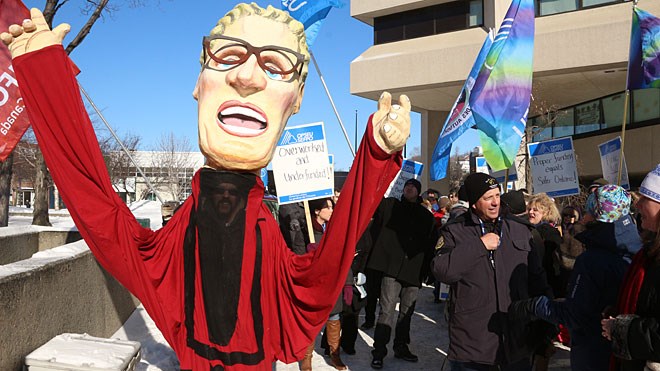He said that in his opinion, there was an “apparent contravention” of subsection 96.1(e).
“Earlier today, I tabled a report with the Legislative Assembly that describes my investigation and findings in response to two complaints I received related to the selection of the Ontario Liberal Party's candidate in the recent Sudbury by-election,” Essensa wrote. “The complaints allege that certain individuals contravened subsection 96.1(e) of the Election Act. This provision concerns bribery in connection with inducing a person to become, refrain from becoming, or withdrawing from being a candidate.
“There has been considerable public and media attention paid to these complaints.
Having reviewed the evidence and findings from this regulatory investigation, it is my opinion that the actions of Gerry Lougheed Jr. and Patricia Sorbara constitute an "apparent contravention" of subsection 96.1(e) of the Election Act.
This is the bribery section of the act, which states “No person shall, directly or indirectly, … give, procure or promise or agree to procure an office or employment to induce a person to become a candidate, refrain from becoming a candidate or withdraw his or her candidacy.”
In a news release, Essensa called the investigation into bribery allegations unprecedented in Ontario.
“No Chief Electoral Officer of Ontario has ever conducted a regulatory investigation into allegations of bribery or ever reported an apparent contravention of the Election Act or the Election Finances Act to the Ministry of the Attorney General,” he wrote.
Essensa pointed out that Elections Ontario investigations are regulatory, not criminal, and offences under the Elections Act are prosecuted under the Provincial Offences Act, not the Criminal Code.
“According to the protocol in place with the Ministry of the Attorney General, the Assistant Deputy Attorney General – Criminal Law Division, decides whether or not to refer the matter to the police,” Essensa wrote. “It is up to the police to decide whether to lay charges in consultation with the Crown, which would then prosecute the matter.”
To arrive at his conclusion of “apparent contravention,” Essensa said he must be satisfied, based on the evidence from his investigation, that there is more than simply a "fair probability" the rules were broken.
Having arrived at this conclusion, and pointing out his role is to determine if the rules were broken, not to determine guilt or innocence, Essensa has referred the matter to the Attorney General.
He will not be making any further comment, Essensa said.
NorthernLife.ca will have more on this story as it develops.
Join Sudbury.com+
- Messages
- Post a Listing
- Your Listings
- Your Profile
- Your Subscriptions
- Your Likes
- Your Business
- Support Local News
- Payment History
Sudbury.com+ members
Already a +member?
Not a +member?
Sign up for a Sudbury.com+ account for instant access to upcoming contests, local offers, auctions and so much more.
